Incorporating figs into meals and snacks is an easy and delicious way to your boost intake of fiber, potassium, magnesium, calcium, and iron, but what many don’t realize is that eating figs is also a great way to reduce inflammation and lower disease risks. Thanks to their unique combination of nutrients and bio-active compounds, dried figs are a smart choice—even one of the best choices among dried fruits for anti inflammation—when following an eating approach that includes foods for anti-inflammation.
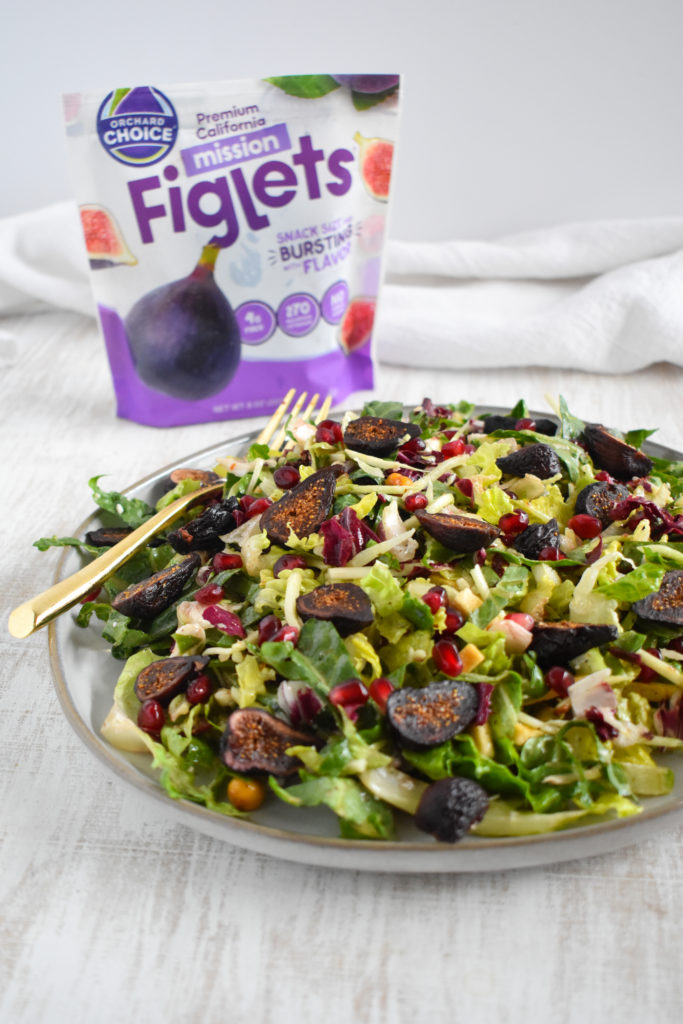
Why is a Diet for Anti-Inflammation Important?
“Inflammation” and “diet for anti-inflammation” are hot buzzwords in the media lately, something that may give you the impression that inflammation is more of a momentary trend rather than research-backed nutrition advice. The reality is that there is significant research to support the benefits that an eating approach with foods for anti-inflammation can have on reducing disease risk and improving health.
Here’s a quick overview of inflammation and how it’s connected to food:
Inflammation is a natural immune system response designed to help the body heal or fight off a pathogen. This inflammatory response is designed be temporary, slowly dissipating once it has the body on the road to recovery. This acute or temporary response allows the immune system to function effectively and at full-force when needed, but it also provides a much-needed “breather” for rest in between responses.
The problem arises when inflammation sticks around and doesn’t go away. Unlike acute, ongoing or chronic inflammation is typically triggered by environmental or lifestyle irritants (things like foreign compounds, chemicals, stress, or poor sleep), and the ongoing inflammatory response causes the immune system to become overworked. This impairs its’ ability to keep the body healthy, but also starts to impact the functioning of the endocrine and cardiovascular systems. These cascading effects are why research suggests that this type of inflammation is at the root of most chronic diseases ranging from type 2 diabetes to heart disease to cancer.
The good news is that diet and lifestyle changes can reduce inflammation and adopting an eating approach with foods for anti-inflammation—one that minimizes intake of processed foods, added sugars, and other dietary irritants and emphasizes anti-inflammatory foods with key nutrients and compounds—is one of the best ways to do this. Both fresh and dried figs contain some of these compounds, but dried figs are even more concentrated, making them a solid option to incorporate as fruits for anti inflammation.
Here’s why figs are such a great addition to a diet for anti-inflammation.

#1 Dried Figs Promote Gut Health
An ample and diverse supply of good bacteria is characteristic of a “healthy” gut, and these good bacteria provide a protective-like barrier in the GI tract. This barrier allows beneficial nutrients to pass into the body while preventing outside compounds from entering that could trigger inflammation. When the supply of good bacteria can’t survive or gets disrupted, the protective barrier isn’t as effective, and this allows more inflammatory irritants to enter the body.
Consuming adequate fiber is essential for good bacteria in the gut to survive and thrive, and dried figs are a great source. One serving of dried figs (about 3 to 5 depending on the variety) has approximately 5 grams of fiber. This is 20% of the Daily Value and more dietary fiber than most other fruits when compared ounce-for-ounce. The fiber in figs also contains prebiotics, a type of fiber that serves as food for gut bacteria.
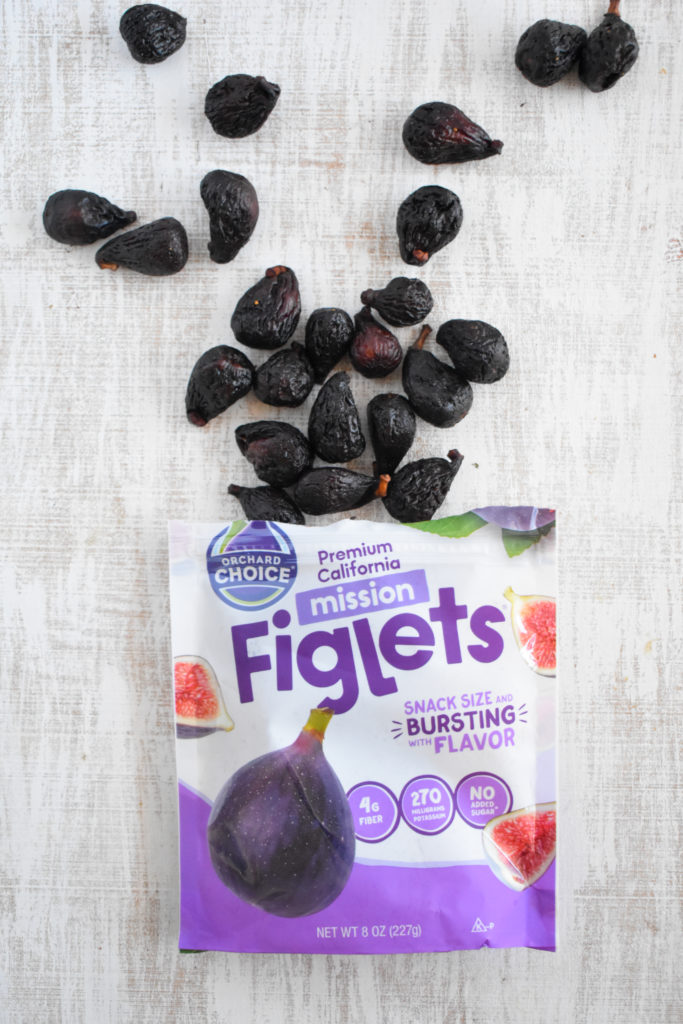
#2 Dried Figs Contain Compounds That Prevent Inflammation (and Calm Existing Inflammation)
Figs are loaded with antioxidants that stop free radicals from damaging cells and creating new inflammation in the body. But figs are also packed with phytochemicals which may be are just as important as antioxidants (maybe even more so) when it comes to reducing inflammation. Found exclusively in plant foods, phytochemicals are bioactive compounds that research suggests have antioxidant-like and anti-inflammatory effects. Dried figs are a good source of two types of phytochemicals, polyphenols and flavonoids, which work to ease existing inflammation and to prevent free radicals from triggering new inflammation.
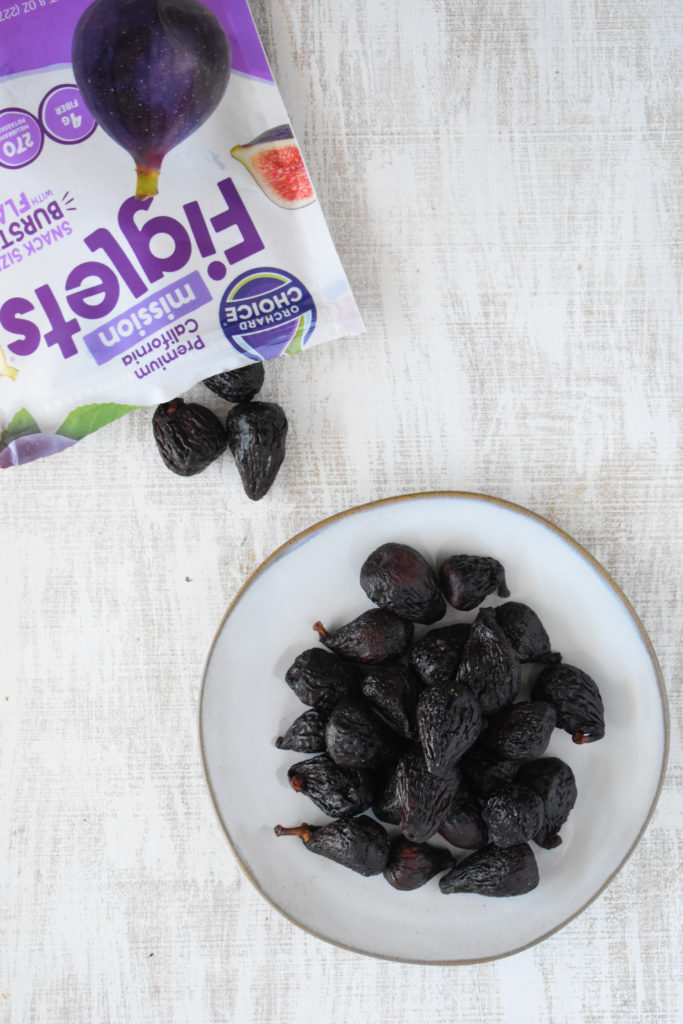
#3 Dried Figs Minimize Rapid Glucose Fluctuations
All carbohydrate-rich foods cause an increase in blood glucose, and the intensity of this increase varies greatly ranging from slow-and-steady to a sudden spike depending on the type of carbohydrate eaten. Research suggests that regular intake of carbohydrate-rich foods that cause a rapid increase in glucose triggers inflammation. To avoid extreme fluctuations, this means minimizing refined carbohydrates and added sugars. It also means predominantly choosing foods for anti-infllamation—ones that have a low to moderate glycemic effect, and dried figs are one of those!
Figs have a wonderful honey-like sweetness that comes solely from natural sugars, and thanks to their high fiber content, figs only have a moderate effect on glucose levels. Choosing foods that minimize rapid glucose fluctuations like dried figs helps keep blood sugar within normal parameters which helps to prevent cravings, as well as inflammation associated with obesity, Type 2 diabetes, and heart disease.
Dried figs are a staple in my pantry because they’re easy to pack and are the perfect treat when I’m craving something sweet, and their anti-inflammatory perks make me love them even more. Look for ways to incorporate figs into snacks and dishes like salads and grain bowls to start tackling inflammation today!

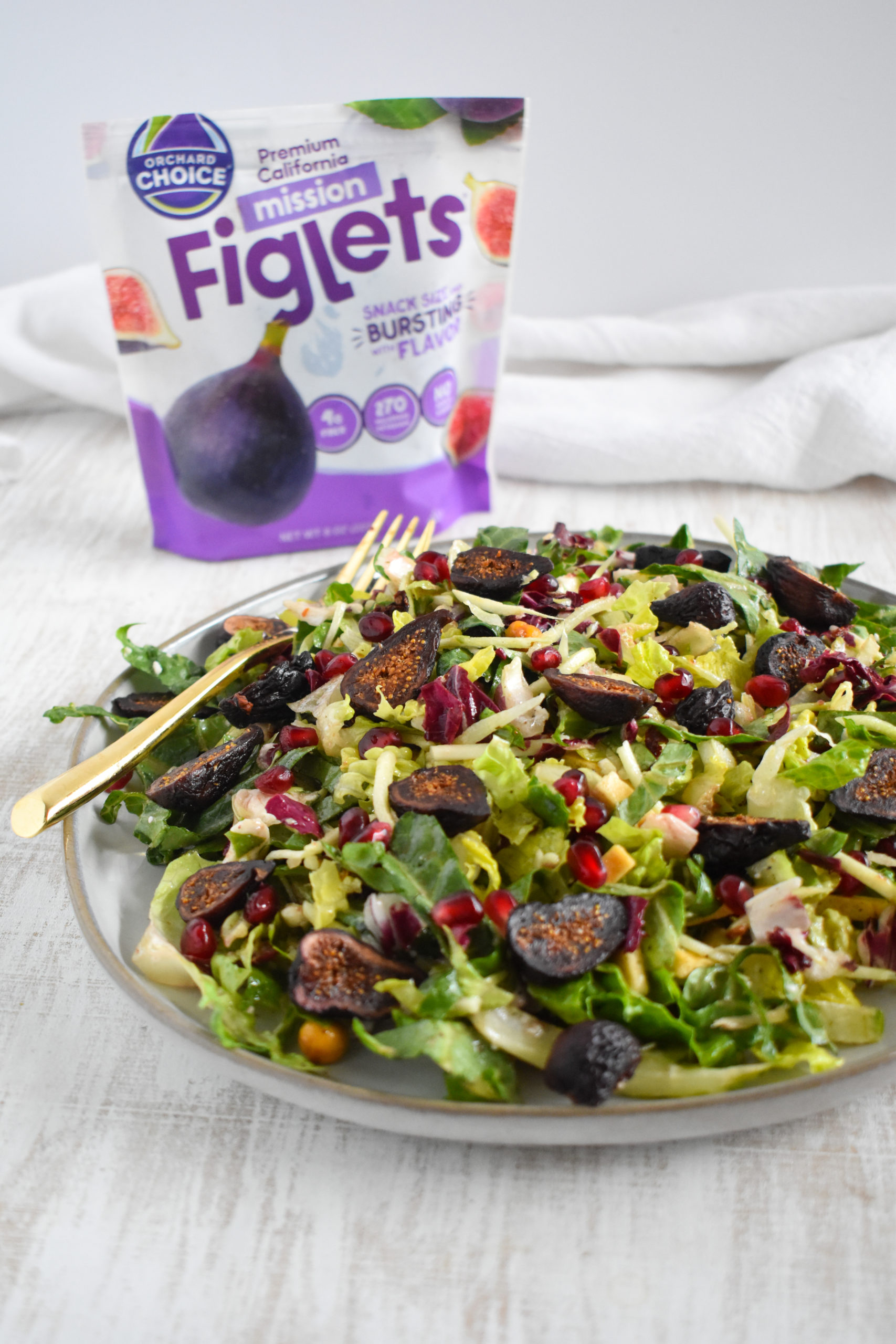
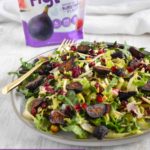
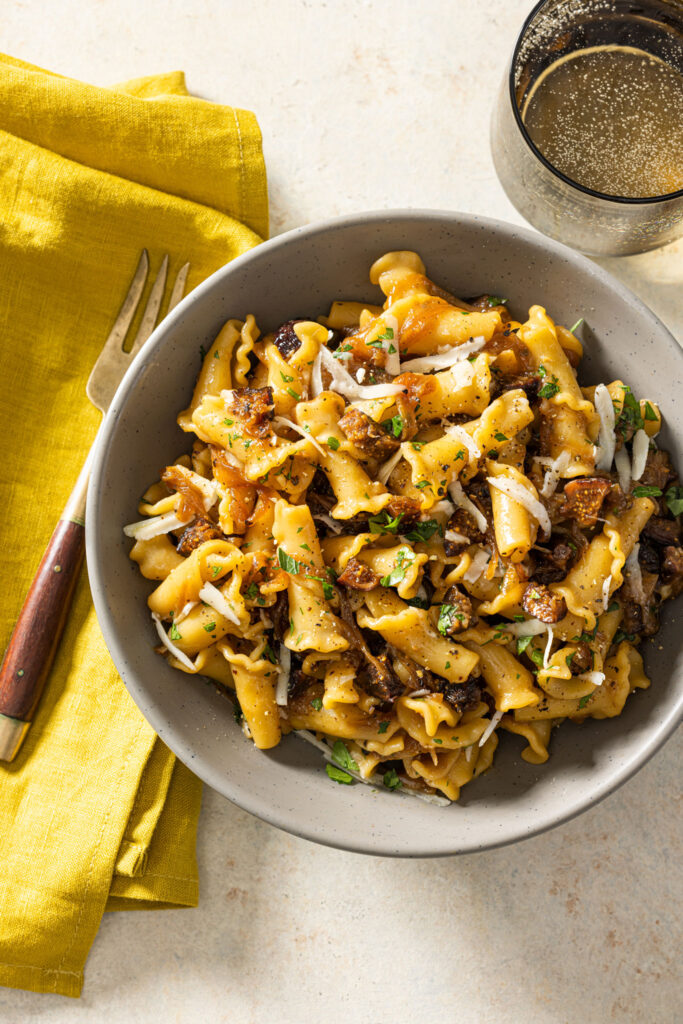



3 Comments on “Foods for Anti-Inflammation + Fruits for Anti-Inflammation: How Dried Figs Fit”
I am desperately trying to tamp down a case of acute inflammation I unwittingly brought upon myself, and having ordered several types of organic dried fruits around December from a company I’ve put my trust in for years, I decided it was time to put the figs to much-needed good use. I ate a package of five good-sized figs late in the evening, and have yet to eat today, 12 hours later! I am seeing what happens when freezing them. I hope they thaw out well.
I have Crohn’s disease so apparently figs should be good for me. Anti inflammatory !
Hi Danielle,
Has eating figs made a difference for your Crohn’s?